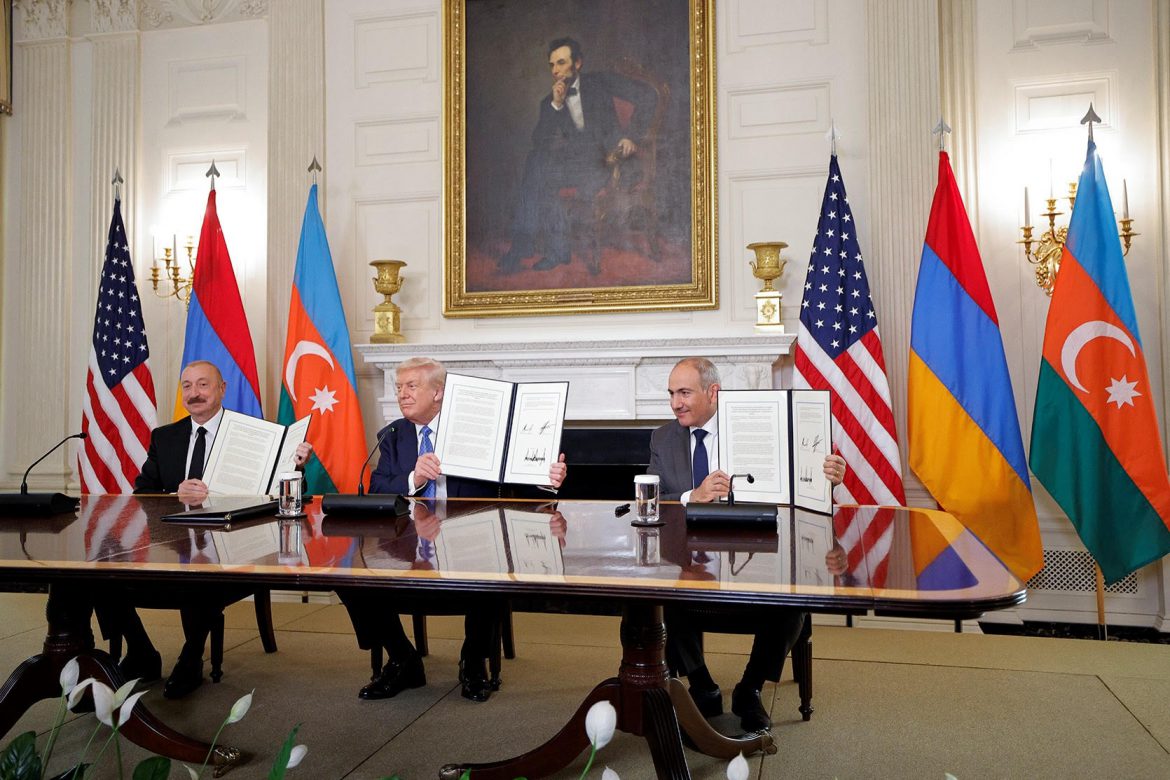A few days ago, Armenia and Azerbaijan published the text of a peace agreement brokered by the United States. On paper, both sides pledged to respect each other’s territorial integrity and formally end the decades-long conflict. However, it remains uncertain whether the countries will actually sign the agreement. Numerous mutual claims and disputes—unlikely to be resolved in the near future—cast doubt on the readiness for reconciliation that Armenia and Azerbaijan have attempted to demonstrate. Moreover, the draft itself, along with additional agreements, raises many questions about who would truly benefit from a potential truce.
One of the few agreements that has already been signed and entered into force grants the United States exclusive rights to develop the Zangezur Corridor—a strategic transport route between Azerbaijan and the Nakhchivan Autonomous Republic—for 99 years. As usual, when it comes to America’s interests, it acts swiftly. According to the White House, the project, already branded the Trump Route for International Peace and Prosperity, is expected to strengthen economic ties with the region and boost energy exports. At the same time, the United States has cemented its presence in the South Caucasus, presenting this as another triumph of Washington’s diplomacy.
As for Baku and Yerevan: while the former stands to gain the most from the potential peace, the latter risks becoming a bargaining chip. Azerbaijan not only gains the opportunity to legally consolidate its control over newly acquired territories but also to position itself as a key energy hub in the South Caucasus. Moreover, restrictions on defense cooperation between Azerbaijan and the United States have been lifted. The mere possibility of acquiring U.S. weapons emboldens Azerbaijan, giving it more confidence and freedom of action—resulting in greater pressure on Yerevan. President Aliyev has already attempted, multiple times, to force amendments to the Armenian Constitution, demanding that they be implemented as quickly as possible.
It appears that everyone except Armenia gains something. Trump secures the titles of “peacemaker” and “noble tenant,” Aliyev gains the backing of powerful patrons, while Prime Minister Pashinyan is left with a host of problems that could further weaken Armenia’s geopolitical position. After losing Artsakh and failing to obtain clarity on the fate of political prisoners in Azerbaijan or the return of ethnic Armenians displaced in 2023, Armenia quickly lost its primary negotiating tool—paving the way for U.S. control over the Zangezur Corridor. Looking ahead, this could provoke serious internal political instability and even threaten Armenia’s territorial integrity.
Mihran Artemyan
Mihran works in management consulting. At the age of three, he immigrated to the United States with his parents, who instilled in him a deep love for his native country, Armenia. This explains his strong interest in the history, culture, and politics of his homeland.




